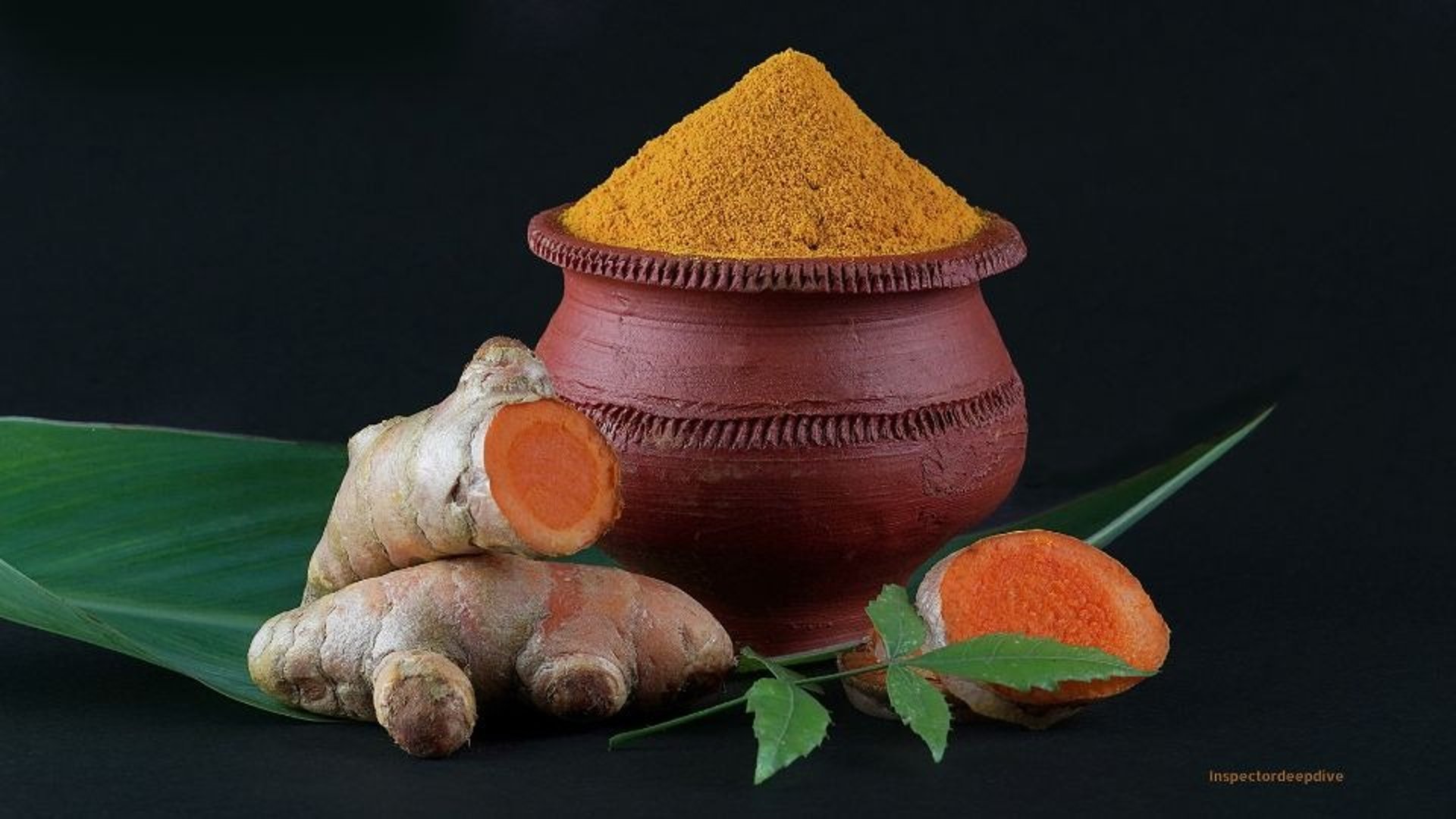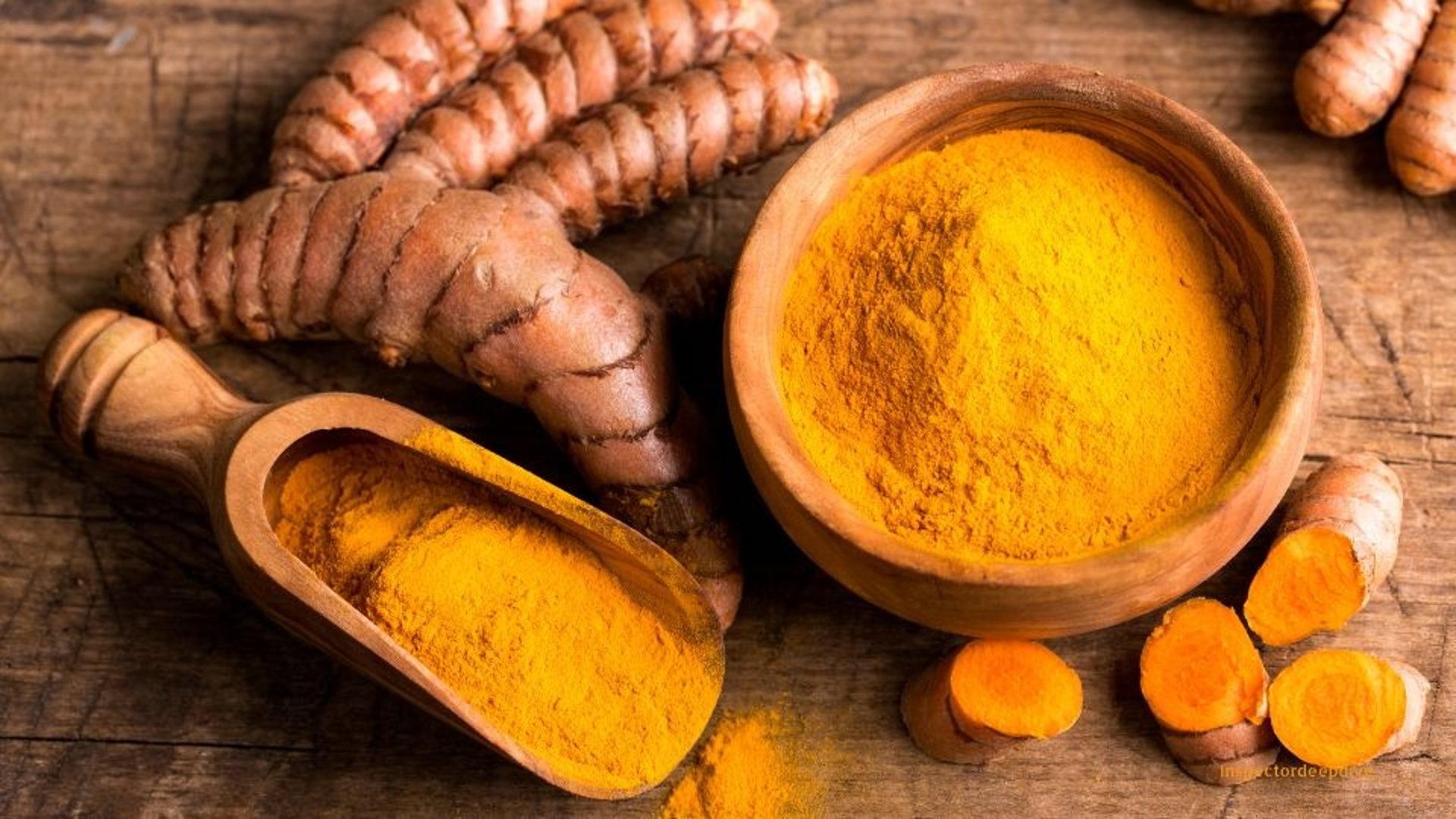
Turmeric: The Golden Spice with Powerful Health Benefits

Scientific Name: Curcuma longa
What Is Turmeric?
Turmeric is a vibrant yellow-orange spice derived from the rhizomes (roots) of the Curcuma longa plant. For thousands of years, it has been a staple in Indian and Southeast Asian cultures, valued not only as a culinary ingredient but also for its medicinal properties in traditional systems like Ayurveda and Traditional Chinese Medicine. Today, turmeric enjoys global popularity, appearing in foods, beverages, dietary supplements, and skincare products.
Origin and Cultivation
Native to South Asia particularly India and Sri Lanka turmeric flourishes in tropical climates with warm temperatures and high humidity. India remains the largest producer and consumer, followed by countries such as Bangladesh, China, Indonesia, and Thailand. Fresh turmeric root is available year-round in many Asian and specialty markets, while dried powder and supplements are widely accessible worldwide. The peak harvesting season in India occurs between January and March.
Health Benefits of Turmeric
Turmeric offers a broad spectrum of health benefits, largely attributed to its active compound curcumin:
Joint Health: Helps alleviate arthritis symptoms and improves mobility.
Brain Health: Enhances memory and may reduce the risk of neurodegenerative diseases like Alzheimer’s.
Immune Support: Possesses natural antimicrobial properties that help fend off infections.
Heart Health: Lowers cholesterol and improves blood vessel function.
Digestive Aid: Reduces bloating and supports gut health.
Skin Radiance: Combats oxidative stress, promoting a youthful complexion.
Blood Sugar Regulation: Assists in stabilizing blood sugar levels, beneficial for diabetes management.
Liver Detoxification: Protects the liver from toxins and oxidative damage.
The Powerful Anti-Properties of Turmeric
Turmeric’s curcumin content provides multiple protective effects:
Anti-inflammatory: Blocks inflammatory pathways, reducing chronic inflammation linked to arthritis and other conditions.
Antioxidant: Neutralizes harmful free radicals and boosts the body’s defense against oxidative stress.
Anti-cancer: May inhibit tumor growth and spread, especially in breast, colon, and prostate cancers.
Anti-aging: Slows cellular damage, reducing visible signs of aging like fine lines and uneven skin tone.
Anti-diabetic: Improves insulin sensitivity and glucose metabolism.
Anti-microbial: Fights bacteria, viruses, and fungi, supporting immune health.
Anti-coagulant: Enhances blood flow and reduces clot formation risk.
Anti-depressant: Modulates neurotransmitters such as serotonin and dopamine, supporting mood and mental well-being.
Nutritional (Per 1g Raw Turmeric Root)
Vitamins: Includes Vitamin C, B-complex vitamins (B1, B2, B3, B6, B9), Vitamin E, and Vitamin K, supporting immunity, energy metabolism, brain function, and blood clotting.
Minerals: Contains calcium, iron, magnesium, phosphorus, potassium, sodium, and zinc, which aid bone health, oxygen transport, muscle function, and immune support.
Macronutrients: Nearly calorie-free with trace amounts of protein, fat, carbohydrates, fiber, and natural sugars.
Key Bioactive Compounds
Curcumin: The primary polyphenol responsible for turmeric’s color and many health benefits, including antioxidant and anti-inflammatory effects.
Demethoxycurcumin & Bisdemethoxycurcumin: Complement curcumin’s actions.
Volatile Oils: Such as turmerone, atlantone, and zingiberene, contribute to turmeric’s aroma and potential digestive and anti-inflammatory benefits.
For best absorption, curcumin is often consumed with black pepper (which contains piperine) or healthy fats.
How Turmeric Works in the Body
Curcumin is poorly absorbed on its own but is rapidly metabolized in the liver and excreted mainly through feces. Its effects include reducing inflammation, combating oxidative stress, and potentially enhancing mood by influencing neurotransmitters.
Potential Risks and Interactions
While turmeric is generally safe in culinary amounts, high doses or supplements may cause gastrointestinal discomfort, interfere with blood clotting, reduce iron absorption, or interact with medications such as anticoagulants, diabetes drugs, stomach acid reducers, and chemotherapy agents. People on blood thinners, those with gallbladder issues, pregnant women, and individuals with iron deficiency should consult healthcare providers before use.
Surprising Facts
Most clinical studies focus on concentrated curcumin extracts rather than dietary turmeric.
Some commercial supplements may contain fillers or inconsistent curcumin levels.
There have been reports of lead contamination in some imported turmeric powders.
Bold claims about turmeric curing cancer or reversing Alzheimer’s lack strong clinical evidence.
Environmental Impact
Turmeric cultivation requires moderate water and land resources, but rising global demand raises concerns about unsustainable farming and soil depletion. Choosing organic and fair-trade turmeric supports better environmental and labor practices.
Best Practices for Consumption
Take turmeric with meals, especially those containing healthy fats, to enhance absorption.
Morning or midday consumption is preferred to avoid potential sleep disturbances.
Use turmeric in cooking (soups, stews, rice, smoothies), golden milk, teas, capsules, or topical skincare (with patch testing).
Culinary Tips
Pair turmeric with black pepper and cook with oils like coconut oil for better nutrient release.
Add to lentils, roasted vegetables, scrambled eggs, or homemade golden milk for flavor and health benefits.
Storage and Shelf Life
Fresh turmeric root: Refrigerate up to 3 weeks or freeze for longer storage.
Dried powder: Store in a cool, dry place in an airtight container for up to 1 year.
Supplements: Follow label instructions.
Popular Recipes
Golden Chickpea Stew
Turmeric Roasted Cauliflower
Anti-Inflammatory Smoothie (turmeric, banana, spinach, almond milk)
Turmeric Rice with Peas
DIY Golden Latte (turmeric, black pepper, oat milk, cinnamon)
Scientific Insights and Recent Breakthroughs (2025)
Research continues to explore curcumin’s role in regulating gut inflammation via microbiome pathways, with new delivery methods improving bioavailability. Studies also highlight turmeric’s potential in slowing cognitive decline and reducing blood sugar levels in metabolic syndrome when included in plant-based diets.
Frequently Asked Questions
Is turmeric safe to take daily?
Yes, in food amounts. Supplements should be used as directed and under medical supervision.
Can turmeric be taken with other supplements?
Generally yes, but consult a healthcare provider if on medication or blood thinners.
Does turmeric stain teeth?
Yes, especially in powder form. Rinse your mouth after consumption.
What is the difference between turmeric and curcumin?
Turmeric is the whole root/spice; curcumin is one of its active compounds.
Can turmeric aid weight loss?
Limited evidence suggests it may reduce inflammation related to obesity but is not a direct weight-loss agent.
Turmeric: The Golden Spice with Powerful Health Benefits
© 2025 food.InspectorDeepDive.com. All rights reserved. Content may not be copied or republished without permission.
This article is for informational purposes only. InspectorDeepDive.com does not provide medical advice. Always consult a licensed healthcare provider before making dietary or health decisions.
